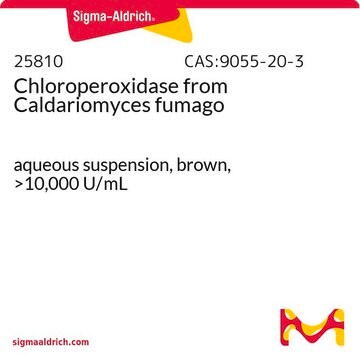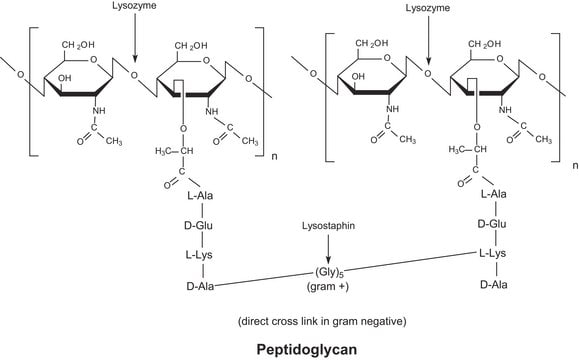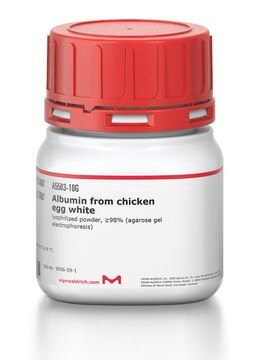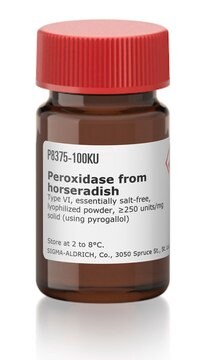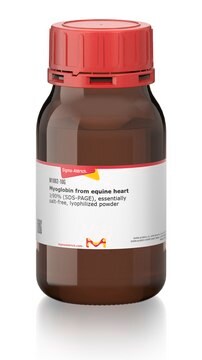C0278
Chloroperoxidase from Caldariomyces fumago
buffered aqueous suspension, ≥3,000 units/mL
Synonym(s):
Chloride Peroxidase, Chloride:hydrogen-peroxide oxidoreductase
About This Item
Recommended Products
form
buffered aqueous suspension
mol wt
42 kDa
concentration
≥3,000 units/mL
shipped in
wet ice
storage temp.
2-8°C
Looking for similar products? Visit Product Comparison Guide
Related Categories
General description
Application
Biochem/physiol Actions
Unit Definition
Physical form
inhibitor
Signal Word
Danger
Hazard Statements
Precautionary Statements
Hazard Classifications
Resp. Sens. 1
Storage Class Code
10 - Combustible liquids
WGK
WGK 3
Flash Point(F)
Not applicable
Flash Point(C)
Not applicable
Personal Protective Equipment
Regulatory Listings
Regulatory Listings are mainly provided for chemical products. Only limited information can be provided here for non-chemical products. No entry means none of the components are listed. It is the user’s obligation to ensure the safe and legal use of the product.
JAN Code
C0278-1.25KU:
C0278-BULK:
C0278-12.5KU:
C0278-6.25KU:
C0278-VAR:
Choose from one of the most recent versions:
Already Own This Product?
Find documentation for the products that you have recently purchased in the Document Library.
Our team of scientists has experience in all areas of research including Life Science, Material Science, Chemical Synthesis, Chromatography, Analytical and many others.
Contact Technical Service